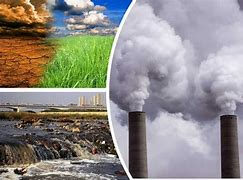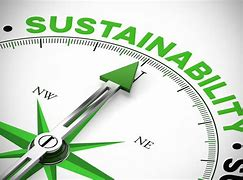Environmental Issues and Sustainability
Environmental Issues
Environmental
issues refer to concerns and problems related to the natural environment,
including the depletion of natural resources, pollution of air, water, and
soil, loss of biodiversity, climate change, and the degradation of ecosystems.
These issues are often caused by human activities such as industrialization,
deforestation, agriculture, transportation, and urbanization, and can have
significant impacts on human health, the economy, and the planet as a whole.
Addressing environmental issues requires taking measures to reduce
environmental pollution, conserve natural resources, promote sustainable
development, and mitigate the impacts of climate change.
Environmental
issues can have wide-ranging impacts on the world we live in. For example, air
pollution can cause respiratory illnesses, while water pollution can affect
human health and wildlife habitats. Deforestation can lead to soil erosion,
loss of biodiversity, and contribute to climate change. Climate change, in
turn, can lead to extreme weather events, rising sea levels, and other
environmental and societal disruptions.
Addressing
environmental issues requires a multi-disciplinary approach involving
individuals, governments, and organizations at the local, national, and
international levels. This includes promoting sustainable practices such as
renewable energy, reducing greenhouse gas emissions, protecting natural
habitats, and implementing measures to reduce waste and pollution.
Environmental
issues are often interconnected and require a holistic approach to solve. For
example, promoting sustainable agriculture can reduce the use of harmful
chemicals and pesticides, preserve natural habitats, and promote biodiversity.
Similarly, reducing greenhouse gas emissions can mitigate climate change,
reduce air pollution, and promote sustainable development.
Overall,
addressing environmental issues is crucial for ensuring a healthy and
sustainable future for both human society and the natural world.
There are
many environmental issues that the world is currently facing, and some of the
most pressing ones include:
Climate
Change: The Earth's climate is changing rapidly due to human activities such as
the burning of fossil fuels and deforestation. This is causing rising
temperatures, sea level rise, and more frequent and severe weather events.
Pollution:
Pollution of air, water, and soil is a major environmental issue. This includes
emissions from vehicles and factories, chemical runoff from agriculture and
industry, and waste disposal.
Loss of
Biodiversity: The world is experiencing a significant loss of plant and animal
species due to habitat destruction, climate change, and other factors.
Deforestation:
Deforestation contributes to climate change, loss of biodiversity, soil
erosion, and other environmental issues. It is primarily caused by agricultural
expansion, logging, and mining.
Water
Scarcity: Many regions of the world are experiencing water scarcity due to
overuse, pollution, and climate change. This can have significant impacts on
human health and agriculture.
Sustainable
Development: Sustainable development aims to promote economic growth while
preserving the environment for future generations. This includes promoting
renewable energy, reducing waste and pollution, and preserving natural
habitats.
Overall,
addressing environmental issues requires a comprehensive and collaborative
approach that involves individuals, governments, and organizations at all
levels. By working together, we can ensure a healthier and more sustainable
future for our planet.
Ocean
Acidification: The ocean is becoming more acidic due to increased levels of
carbon dioxide in the atmosphere, which is harming marine life and ecosystems.
Land Use
Change: Land use change, including urbanization and agricultural expansion, can
lead to habitat destruction, loss of biodiversity, and contribute to climate
change.
Plastic
Pollution: Plastic waste is a significant environmental issue, with plastic
products and packaging contaminating our oceans, harming marine life and
ecosystems, and posing a risk to human health.
Ecosystem
Degradation: Ecosystem degradation, including soil erosion and desertification,
can lead to reduced productivity and biodiversity, and can have negative
impacts on human health and livelihoods.
Renewable
Energy: Increasing the use of renewable energy sources, such as wind and solar
power, is crucial for reducing greenhouse gas emissions and mitigating climate
change.
Food
Security: Ensuring food security while promoting sustainable agriculture is
important to ensure that we can feed the growing global population while
minimizing the environmental impact of agriculture.
Addressing
these and other environmental issues will require a sustained effort and a
commitment to taking action at all levels. Governments, businesses, and
individuals can all play a role in promoting sustainable practices and
mitigating the impacts of environmental issues on our planet.
Air Quality:
Poor air quality caused by pollution from industrial activities,
transportation, and other sources can have serious impacts on human health,
including respiratory diseases and cancer.
Energy
Efficiency: Improving energy efficiency in buildings and transportation can
reduce greenhouse gas emissions and save energy and money.
Wildlife
Conservation: Protecting and preserving wildlife and their habitats is
important for maintaining biodiversity and preserving the natural beauty of our
planet.
Waste
Management: Proper waste management practices, such as recycling and
composting, can reduce the amount of waste sent to landfills and help preserve
natural resources.
Environmental
Justice: Addressing environmental justice issues, such as disproportionate
impacts of pollution on low-income and marginalized communities, is crucial for
ensuring that everyone has access to a healthy and sustainable environment.
Sustainable
Transportation: Promoting sustainable transportation options, such as public
transit, biking, and walking, can reduce greenhouse gas emissions and improve
air quality in urban areas.
Soil
Degradation: Soil degradation, caused by factors such as overuse, erosion, and
pollution, can lead to reduced agricultural productivity and biodiversity loss.
Land
Pollution: Land pollution, caused by waste disposal, mining activities, and
other factors, can contaminate soil and groundwater and harm wildlife and
ecosystems.
Overfishing:
Overfishing is a significant threat to marine ecosystems and can lead to the
collapse of fish populations, harming both the environment and the fishing
industry.
Water
Pollution: Water pollution, caused by industrial and agricultural runoff,
sewage, and other factors, can harm aquatic life, contaminate drinking water,
and contribute to climate change.
Green
Infrastructure: Green infrastructure, such as parks, green roofs, and rain
gardens, can help mitigate the impacts of climate change, improve air and water
quality, and provide other environmental benefits.
Sustainable
Consumption: Promoting sustainable consumption habits, such as reducing waste
and purchasing environmentally-friendly products, can help reduce our impact on
the environment and promote sustainable development.
Ozone
Depletion: Ozone depletion is a serious environmental issue caused by the
release of chlorofluorocarbons (CFCs) into the atmosphere, which can lead to
increased levels of ultraviolet radiation reaching the Earth's surface and harm
human health.
Landfills:
Landfills are a major source of environmental pollution, releasing methane gas,
leachate, and other hazardous materials into the environment, contributing to
climate change and harming human health.
Renewable
Energy Access: Ensuring access to renewable energy for all is important for
reducing greenhouse gas emissions and promoting sustainable development,
particularly in developing countries.
E-Waste:
E-waste, or electronic waste, is a significant environmental issue, with
discarded electronic devices contributing to pollution, climate change, and
health risks for workers in the e-waste recycling industry.
Ecological
Footprint: Understanding and reducing our ecological footprint, or the amount
of resources we consume and waste we produce, is important for promoting
sustainable development and reducing our impact on the environment.
Environmental
Education: Environmental education is crucial for raising awareness about
environmental issues and promoting sustainable practices, particularly among
young people who will be responsible for shaping the future of our planet.
Overall,
addressing environmental issues requires a comprehensive approach that
considers the social, economic, and environmental impacts of our actions. By
taking action to promote sustainable practices and mitigate the impacts of
environmental issues, we can ensure a healthier and more sustainable future for
ourselves and future generations.
Sustainability
Sustainability refers to the ability to meet the needs of the
present without compromising the ability of future generations to meet their
own needs. In other words, it is about balancing social, economic, and
environmental concerns to promote long-term health and well-being for both
people and the planet. Sustainable practices involve using resources in a way
that does not deplete or damage them, reducing waste and pollution, and
promoting social equity and economic prosperity. Sustainability is important
for ensuring that we can maintain a healthy and thriving planet for ourselves
and future generations.
Triple Bottom Line: Sustainability is often described in
terms of the "triple bottom line," which considers the social,
environmental, and economic impacts of our actions. This approach recognizes
that sustainable practices must balance all three factors to promote long-term
health and well-being.
Sustainable Development: Sustainable development is a concept
that emphasizes the importance of balancing economic growth with social and
environmental concerns. It recognizes that economic development is important
for reducing poverty and improving standards of living, but must be achieved in
a way that is sustainable and does not harm the environment or future
generations.
Environmental Stewardship: Environmental stewardship involves
taking responsibility for our impact on the environment and taking action to
minimize that impact. This includes promoting sustainable practices such as
reducing waste and pollution, conserving resources, and protecting biodiversity
and ecosystems.
Corporate Sustainability: Corporate sustainability refers to
the practices and policies adopted by businesses to promote sustainable
development and reduce their environmental impact. This may include using
renewable energy, reducing waste and emissions, and promoting social equity.
Sustainable Consumption: Sustainable consumption involves
using resources in a way that minimizes waste and environmental impact. This
may include reducing consumption, choosing environmentally-friendly products,
and supporting sustainable practices.
Climate Change: Climate change is one of the most pressing
sustainability issues facing the world today. It is caused by greenhouse gas
emissions from human activities such as burning fossil fuels, deforestation,
and agriculture. Addressing climate change requires reducing these emissions
through sustainable practices such as using renewable energy and reducing
waste.
Sustainable Agriculture: Sustainable agriculture involves
using practices that protect the environment and promote social and economic
equity, while also producing food for the growing global population. This may
include using agroecological methods, reducing food waste, and supporting
small-scale farmers.
Sustainable Cities: Sustainable cities are designed to
minimize environmental impact while promoting social and economic equity. This
may include promoting public transportation, green infrastructure, and
energy-efficient buildings.
Circular Economy: The circular economy is an approach to
sustainability that emphasizes using resources in a way that minimizes waste
and maximizes the use of materials. This may include recycling, upcycling, and
reducing consumption.
Social Equity: Social equity is a key aspect of
sustainability, as it recognizes that all people deserve access to the
resources and opportunities needed to lead fulfilling lives. This may involve
promoting access to education, healthcare, and basic services, and addressing
issues such as poverty and inequality.
Overall, sustainability is about promoting practices that
support the long-term health and well-being of people and the planet. By
balancing social, economic, and environmental concerns, we can create a more
sustainable and equitable world for ourselves and future generations.
Sustainable Tourism: Sustainable tourism involves promoting
practices that minimize the negative impact of tourism on the environment and
local communities, while also providing economic benefits. This may include
promoting eco-tourism, reducing waste and energy consumption, and supporting
local communities.
Green Energy: Green energy refers to renewable sources of
energy such as wind, solar, and hydro power that have minimal environmental
impact. Promoting the use of green energy is a key aspect of sustainability, as
it reduces reliance on fossil fuels and helps to address climate change.
Sustainable Transportation: Sustainable transportation
involves promoting modes of transportation that have minimal environmental
impact, such as public transportation, biking, and walking. This helps to
reduce emissions and improve air quality, while also promoting physical
activity and reducing congestion.
Sustainable Products: Sustainable products are those that are
designed to minimize environmental impact throughout their lifecycle, from
production to disposal. This may include products made from recycled or sustainable
materials, those that are designed for durability and repairability, and those
that have minimal packaging.
Collaborative Consumption: Collaborative consumption involves
sharing resources and products with others to reduce waste and consumption. This
may include car-sharing, tool-sharing, and clothing swaps, among other
initiatives.
Overall, sustainability is about promoting practices that
support the long-term health and well-being of people and the planet. By
balancing social, economic, and environmental concerns, we can create a more
sustainable and equitable world for ourselves and future generations.
Sustainable Water Management: Sustainable water management
involves promoting practices that protect and conserve water resources, while
also providing access to safe and clean water for all. This may include
promoting water conservation, reducing pollution, and addressing issues such as
water scarcity and access to clean water.
Sustainable Forestry: Sustainable forestry involves promoting
practices that protect forests and promote their sustainable use. This may
include reducing deforestation, promoting reforestation, and using sustainable
forestry practices such as selective logging.
Sustainable Fisheries: Sustainable fisheries involve promoting
practices that protect fish populations and promote their sustainable use. This
may include reducing overfishing, promoting sustainable fishing practices, and
protecting marine ecosystems.
Sustainable Supply Chains: Sustainable supply chains involve
promoting practices that minimize environmental impact and promote social
equity throughout the entire lifecycle of a product, from production to
disposal. This may include promoting sustainable sourcing of raw materials,
reducing waste and emissions, and ensuring fair labor practices throughout the
supply chain.
Sustainable Investing: Sustainable investing involves
promoting investment in companies and initiatives that promote sustainability
and social equity. This may include investing in renewable energy, sustainable
agriculture, and companies that have strong environmental and social governance
practices.
Overall, sustainability is about promoting practices that
support the long-term health and well-being of people and the planet. By
balancing social, economic, and environmental concerns, we can create a more
sustainable and equitable world for ourselves and future generations.

















.jpg)
No comments: